by Joy Kostansek
Four Ohio University students had the opportunity to taste their way through the culture and traditions of Ecuadorian agriculture over spring break 2020.
Led by Dr. Theresa Moran and faculty from the Pontificia Universidad Católica del Ecuador, the inaugural Coffee, Chocolate and Sugar: Sustainable Agriculture program was an absolute success. Students were able to explore crops central to the Ecuadorian agriculture system while comparing them with the United States context.
A highlight of the trip included touring the Azúcar Tababuela industrial sugar processing plant. We were able to explore the entire sugar-making process, from driving past the fields of sugar cane to seeing the final product you can buy in grocery stores. Once harvested, the sugar cane is broken down to a pulp, travels through a series of five industrial rollers, goes through purification centrifuges, is boiled, and much much more. This experience opened our eyes to the complex system of creating a product that we, as U.S. citizens, eat every single day.
The next day, the whole group drove down into the subtropical forests of Cotacahi, Imbabura, Ecuador. Here, we met a man who runs the Rio Intag Coffee cooperative and one of their local coffee farmers.
As we traipsed through the jungle-like foliage, we had the opportunity to learn what “shade grown coffee” truly means and why it is important for their culture and the environment.
From a bright red coffee berry on the plant to a hot sip of espresso, every stage of coffee production takes a high level of care and precision. Our hosts expressed their passion for this crop, educating us on the agroforestry techniques of growing and how that ultimately leads to a better cup of coffee.
Our trip concluded with the exploration of culture and identity through participation in a traditional cacao ceremony. Here, we helped toast, peel, grind, and purify raw seeds into a delicious cup of hot cacao. Amplified with honey, salt, and chili powder, this beverage has been used throughout human history as a tool to mend relationships and open our hearts and minds to new ideas. Encouraged by our host, we reflected on the meaning behind this ceremony and how important it is to the people of Ecuador.
And as we were sipping this drink, three of the four OHIO students received news that our final semesters as Bobcats were being cut short. Talk about a good time for self reflection and an open mind.
In addition to these three adventures, we had the opportunity to share time and space with many PUCE students through a week of hands-on learning, forging new friendships over food.
As we left Ecuador, we walked away with a newfound perspective on crops that we often take for granted as Americans. We learned how identity can be crafted by a meal and why we should honor the people and places that grow these products. I believe I can speak for the group when I say this trip was profoundly impactful on our life outlooks, and we were honored to have this opportunity to learn from Ecuador.
Joy Kostansek just completed a master’s degree in Sociology and worked as Dr. Moran’s Sugar Bush Foundation Food Studies Graduate Assistant the last two years. She is soon beginning a position as a Local Food Advocate in Columbus, Ohio.


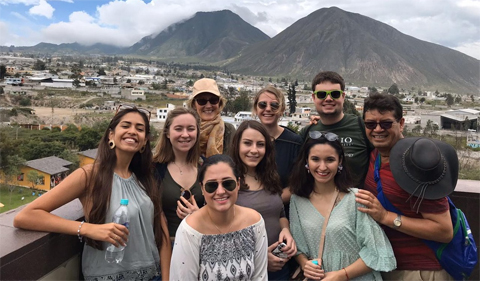
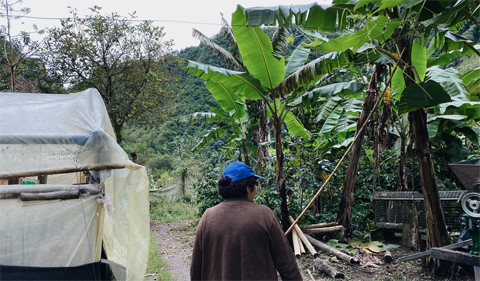
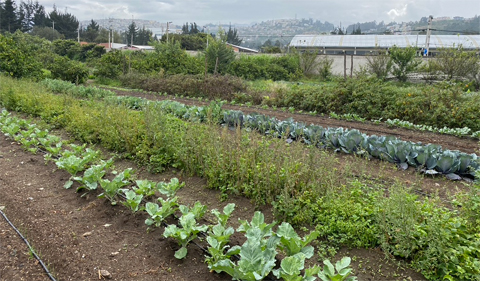
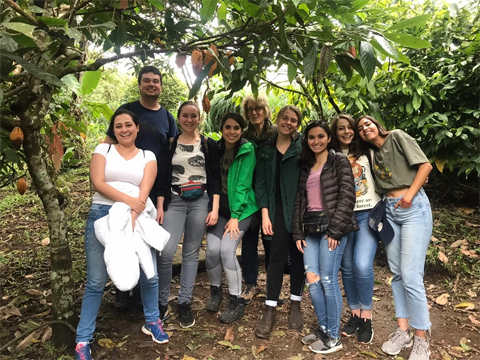
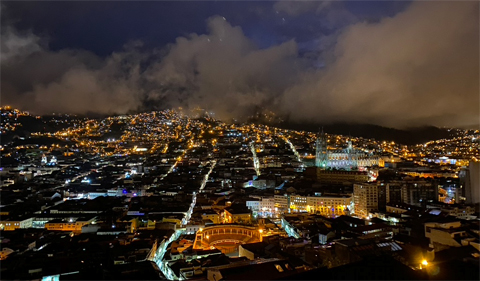
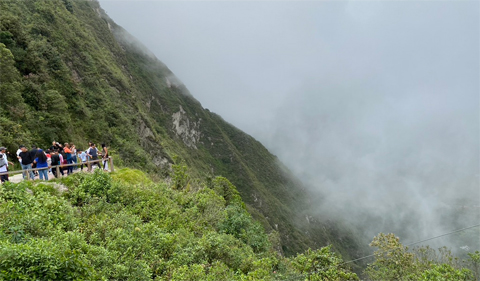
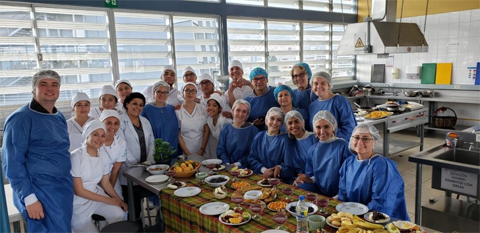

















Comments